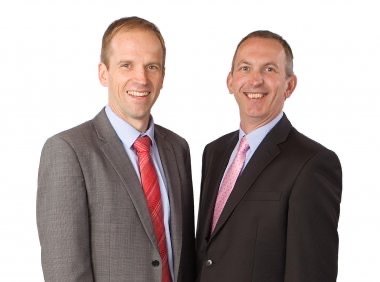
Speak to your Lonsdale Wealth Management financial adviser for inheritance tax planning advice

Howard Goodship and Stewart Sims Handcock - Lonsdale Wealth Management Chartered Financial Planners in Ringwood, Hampshire
Howard Goodship, Chartered Financial Planner - Inheritance Tax Solutions
Tuesday 20 April, 2021
If you require inheritance tax (IHT) planning advice read this article by Howard Goodship where he provides an overview of potential solutions available to help reduce the value of your estate. For more information and case studies read our Inheritance Tax Introductory Guide.
My last article - Having the confidence to act and mitigage inheritance tax, described a simple method to help you to understand how much money you need for your own lifetime. Once you have identified this, you will have more confidence to take action on mitigating any future IHT liability. By way of a brief reminder:
1-Cash flow projections to identify what capital & income you require and what is surplus to your needs.
2-Utilise annual gift exemptions for both capital and surplus income.
3-Ensure Wills are up to date and tax efficient.
4-Consider the most appropriate and efficient solution to reduce the value of your estate (see below).
5-Insure any remaining liability.
Overview of potential solutions available to help reduce the value of your estate.
Potentially Exempt Transfer (PET)
This could be an outright gift of capital or capital paid into an Absolute Trust. Any investment growth is immediately outside your estate and so is the initial capital after 7 years.
Chargeable Lifetime Transfer (CLT)
This would be capital paid into a Discretionary or Interest in Possession Trust and the same 7- year rule applies as above. However, there would be an immediate tax charge of 20% if the initial capital paid into the trust exceeded the nil-rate band (currently £325,000 per person). There could also be periodic 10-year and exit tax charges on any excess above the nil-rate band.
Loan Trusts
These are trusts (Absolute or Discretionary) into which a loan is paid. The settlors can then draw back the loan at any time, with a maximum of 5% per annum of the loan being tax-deferred (withdrawals in excess of this could trigger and income tax charge). It is a way to spend your capital but allow investments to grow outside your estate. This results in a gradual reduction in the value of your estate if the loan repayments are spent.
Discounted Gift Trust (DGT)
A capital sum (gift) is paid into the trust and, depending on the age and health of the settlor, an immediate “discount” is allowed off the value of the gift and therefore off the settlor’s estate. An “income” can then be agreed at outset and paid to the settlor of up to 5% of the original capital and any growth is outside the estate. Payment of more than 5% could create a tax charge.
AIM & BPR Schemes
Investment products which are treated as being outside the estate after 2 years rather than the more usual 7 years. AIM and BPR solutions are high risk and only suitable in very specific circumstances.
Howard Goodship, Chartered Financial Planner, Ringwood, Hampshire said: 'As in everything in life, the devil is in the detail and what is appropriate and suitable for one person may not be for another. The recommendation of any IHT solution should be personal, bespoke and should follow detailed analysis and professional advice. I’ve simply provided an overview of some tried and tested solutions to illustrate that there are options available.'
The value of an investment and the income from it could go down as well as up. The return at the end of the investment period is not guaranteed and you may get back less than you originally invested. The contents of this article are for information purposes only and do not constitute individual advice. The Financial Conduct Authority does not regulate Cash Flow Plans or Cash Flow Modelling.
To read more articles in the Understanding Investments series please see below:
1 What are Investments and why should you own them?
2 Managing risk and tax to earn a higher return.
4 Tax efficient investment income.
5 What are my pre-retirement options
6 What are your choices at retirement
7 How much money do you need in retirement?
8 Tax efficient saving for grandchildren
9 The value of independent financial advice
10 Pension contributions for all ages
11 How to combat inflation the enemy of retirees
12 Actions to take in volatile bear markets
13 How to achieve tax efficient investment income
14 The value of ongoing investment management
16 Can you afford to retire or start a new business?
Latest News Next Article Previous Article



